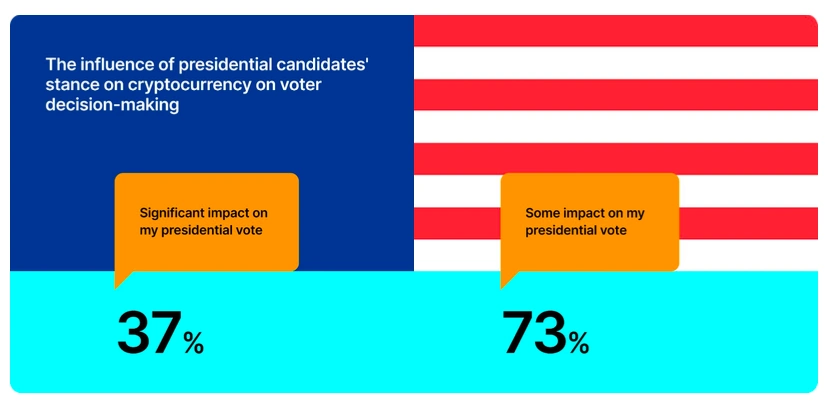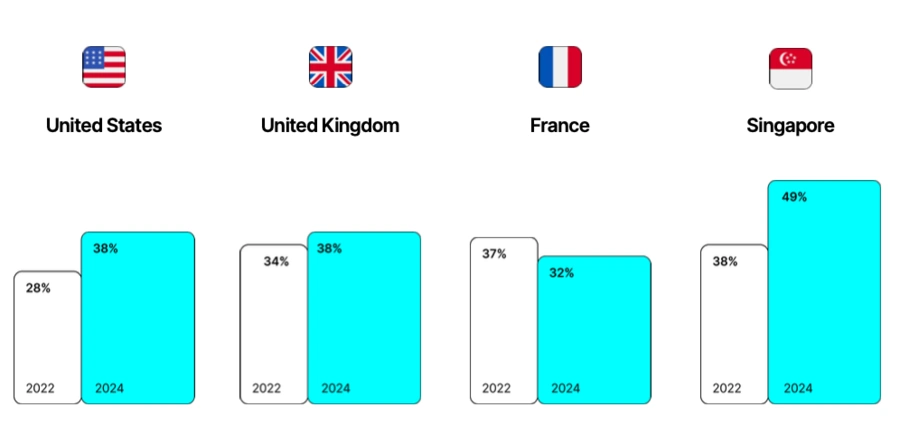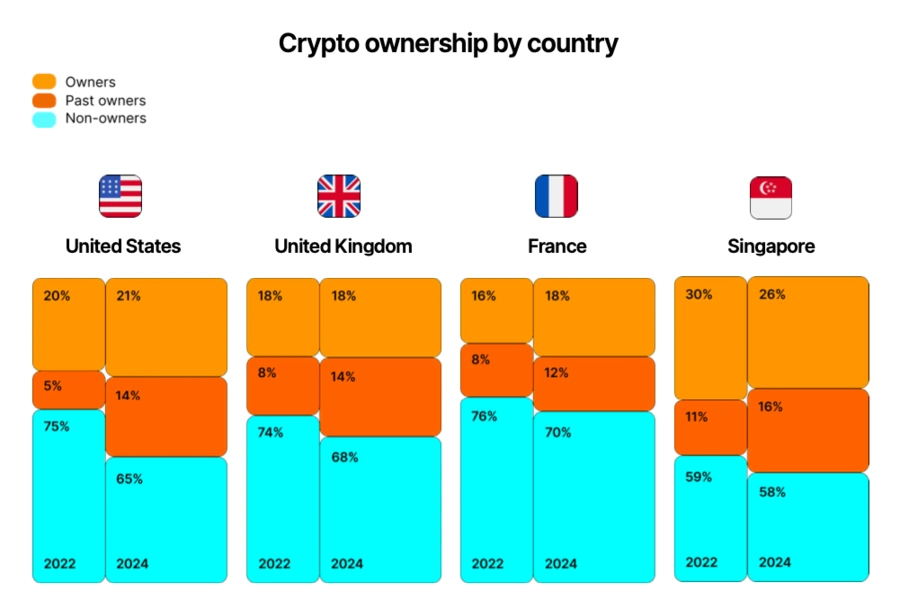Crypto Set to Sway U.S. Election for the First Time, Survey Reveals
Cryptocurrencies are poised to play a significant role in the upcoming U.S. presidential election. An increasing number of American crypto investors are expressing concern about how candidates plan to regulate the rapidly growing industry. This issue is becoming a deciding factor for many voters.
A new report from Gemini, a cryptocurrency exchange founded by the Winklevoss twins, indicates that a large majority of U.S. crypto owners will take candidates' positions on crypto regulation into account when casting their votes in the November election.
Released on September 10, 2024, Gemini’s “Global State of Crypto” report surveyed 6,000 adults from various countries, including the United States, the United Kingdom, France, Singapore, and Turkey. The survey was conducted online between May 23 and June 28, 2024.
73% of U.S.Crypto Owners Will Consider a Candidate's Crypto Agenda
According to Gemini’s report, 73% of U.S. respondents who own cryptocurrency said that a candidate’s stance on crypto regulation would influence their voting decision. Among these, 37% stated that it would have a “significant impact” on how they cast their ballots.

The survey's results show that crypto regulation is becoming a key issue in U.S. politics. For the first time in the nation's history, cryptocurrency policy is a major campaign topic in a presidential election. This shift reflects how deeply cryptocurrencies have embedded themselves in financial and political discussions in recent years.
Regulatory Concerns Deter Past And Non-Crypto Holders
One of the key insights from the report is that U.S. crypto investors are increasingly concerned about regulatory uncertainty. This uncertainty is viewed as a growing barrier to investing in digital currencies.
In 2024, 38% of respondents cited regulatory issues as a major obstacle to entering the crypto market, compared to 28% who expressed the same concern in 2022. The data suggests that as crypto becomes more mainstream, questions about how it will be regulated are top of mind for many potential investors.

Despite these regulatory concerns, more U.S. citizens are getting involved in cryptocurrencies. The percentage of respondents with no exposure to crypto has fallen from 75% in 2022 to 65% in 2024. Meanwhile, the number of current crypto holders rose slightly, from 20% to 21% over the same period.
Perhaps more significantly, the percentage of past crypto owners increased sharply, from 5% in 2022 to 14% in 2024. This indicates that while some people may have sold their holdings, they still have experience with crypto.

On the other hand, some other reports suggest that the number of U.S. adults using cryptocurrency has decreased in recent years. According to the U.S. Federal Reserve’s Survey of Household Economics and Decisionmaking, only 7% of U.S. adults reported using crypto in 2023.
This is a noticeable drop from 10% in 2022 and 12% in 2021. These figures suggest that while interest in cryptocurrency remains strong, there may be a segment of the population stepping back from using it directly, possibly due to concerns about volatility or unclear regulations.
In summary, as the 2024 U.S. presidential election approaches, the stance of candidates on cryptocurrency regulation will likely play a pivotal role in shaping voter decisions, particularly among those who are already invested in digital currencies.
With growing concerns about regulation and increasing involvement in the crypto market, this issue is likely to remain at the forefront of political discourse for the foreseeable future.




